CCC: CCC-Training in Cooperation with TUV Academy
Our last CCC training course “Fully Informed for China Compulsory Certificate (CCC) – Certification Requirements and Procedures in the field of Automotive,” took place on April 22, 2015 in Stuttgart and was held in cooperation with TÜV SÜD Academy.
The seminar gave a good overview of the certification process, procedures, potential problems, solutions and realistic understanding what to expect. The goal was to inform our attendees thoroughly of how the process works, including a lesson on the National Standards (also known as “GB Standards”) which determine if a product will need CCC certification, and the Implementation Rules, which prescribe the process necessary to receive certification.
We also discussed the importance of digging deeper into the product function to determine if other certifications may be required for particular products. Some additional certifications that may be needed, depending on the product, include CEL (China Energy Label) and NAL (Network Access License). Manufacturers often overlook these additional certifications, not realizing that they are needed. If a product does not have all of the required certifications it is not in compliance with the Chinese regulations and may be held at customs, regardless of having CCC certification.
 You can find more information about the automotive CCC here.
You can find more information about the automotive CCC here.
More information about upcoming courses are available here directly on the TÜV SÜD Academy page. The following courses are planned for 2015:
September 24, 2015 – Frankfurt am Main, Germany
November 23, 2015 – Munich, Germany
October 26, 2015 – Stuttgart, Germany
On our website you will find a schedule of upcoming training events and lectures under the tab “Training“. We are also available to provide personalized In-House Training and Lectures.
If you would like to read more Information regarding CCC certification, please visit our website. Here you can learn more about the certification process and the costs associated with certification. You will also find details regarding our certification package on our website including a general anticipated time frame. Take a look at our references section to see some of our clients and what they are saying about us. For more detailed information please download our free booklet “CCC Made Easy” here. You may also consider our book “A Brief Guide to CCC: China Compulsory Certification”, which can be ordered directly on Amazon here.
Please do not hesitate to call or email with any questions you may have.
CFDA: CFDA Announces 90 Additional New Industry Standards for Medical Products
Certain medical products and devices are required to have prior approval by the CFDA (China Food and Drug Administration Chinese: 国家食品药品监督管理总局) before they can be sold or used in China. In an effort to insure continued safety and effectiveness of medical products, there have been numerous changes and revisions within the Chinese regulatory framework for CFDA certification.
In March of 2014 the CFDA published a completely new version of the “Regulations for the Supervision and Administration of Medical Devices” (Chinese: 医疗器械 监督管理条例(修订草案).
Previously in our “News” section we informed you (“CFDA Announces 120 New Industry Standards for Medical Products”) that the CFDA introduced 120 new Industry Standards (abbreviated as “YY Standards”) in announcement No. 30 dated July 3, 2014.
On April 8, 2015 the CFDA has released announcement No. 8 which introduced another 90 new Industry Standards for medical products. The announcement includes 14 mandatory and 76 recommended industry standards. The issuance of these changes will further improve the medical device standards system of China and help improve the overall quality of medical devices.
 The new standards apply to the following products:
The new standards apply to the following products:
- Implants for surgery
- Medical electrical equipment
- In vitro diagnostic reagents
- Dentistry
The purpose for these changes is to promote the positive development of China’s medical equipment industry and to ensure the quality and safety of medical products. It is expected that there will be more announcements, reforms and changes to the CFDA regulations in the future. In our “News” section on our website, we will keep you informed regarding official announcements and changes to the regulations.
Please do not hesitate to call or email with any questions you may have.
CCC: New CCC Regulations for Power Switches and Electrical Connections for Electrical Components
The Chinese certifying authority the CNCA (Certification and Accreditation Administration) recently introduced changes to the implementation rules for power switches and electrical connections. Current CCC certificate holders will need to update their CCC certificates by January 22, 2016 in accordance with the new CNCA implementation rules. To remain in compliance, the manufacturer will be required to submit for a CCC certificate change application prior to their annual follow-up audit, and to complete their annual follow-up audit in accordance to the new regulations.
Previously, electrical accessories were subject to different Implementation Rules based on their relevant product categories. On January 22, 2014 the CNCA changed this by grouping several product categories into a larger collective group that will now all fall under one Implementation Rule (CNCA-C02-01:2014).
These changes will affect manufacturers of electrical accessories (connectors, plugs, sockets, couplers, etc.) for household and industrial purposes. The GB standard for connectors, plugs, sockets and couplers used for industrial purposes is GB / T 11918.1 which directly correlates with the IEC standard: IEC 60309-1: 2012, MOD.
Products affected by the new regulations include:
- Power supply lines and interconnection cords
- Plugs and socket-outlets for household use and similar purposes
- Switches for household and similar fixed electrical installations
- Plugs, sockets and couplers for industrial purposes
- Appliance couplers for household and similar general purposes
- Thermal and electrical fuses
- Boxes and enclosures for electrical installation equipment for household and similar
fixed electrical installations
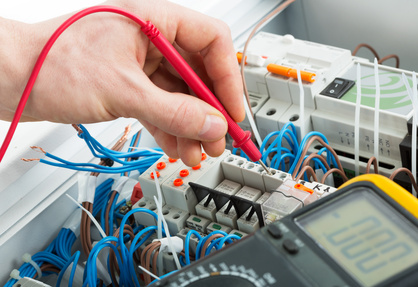 CCC certificates with the old CNCA standard will be suspended or cancelled if not updated by January 22, 2016. If the CCC certificate is suspended or cancelled the product will not be allowed to be imported, bought, sold, traded or used in China. To avoid problems, certificate holders should initiate the certification update as soon as possible. We strongly recommend to start the process in conjunction with the mandatory follow-up audit in 2015.
CCC certificates with the old CNCA standard will be suspended or cancelled if not updated by January 22, 2016. If the CCC certificate is suspended or cancelled the product will not be allowed to be imported, bought, sold, traded or used in China. To avoid problems, certificate holders should initiate the certification update as soon as possible. We strongly recommend to start the process in conjunction with the mandatory follow-up audit in 2015.
We will be happy to advise and assist you with updating your CCC certificate to comply with the new regulations. If you should have any questions, concerns, or needs please call or email us. You may contact us by phone at (UK: +44 2071931135, Rest of Europe: +49 69 2713769150, US: +1 773 654-2673) or you can email any time.
For more detailed information please download our free booklet “CCC Made Easy” here.
CCC: Compulsory Implementation of New Regulations by January 1, 2017
The new Implementation Rules for CCC certification of automotive components were published by the CNCA (Certification and Accreditation Administration) in September of 2014.They have been in effect since January 2015 and all current CCC certificate holders are required to update their CCC certificates to reflect the new Implementation Rules by January 1, 2017.
The new regulations include an expanded scope for CCC requirements for interior trimming materials (for more information see here) and also include a few new changes to the process of CCC certification that may need to be addressed in order to maintain compliance.
The application to update the CCC certificate to show the new Implementation Rules must be done in the course of the annual follow-up inspection. During the factory inspection the Chinese certification authority will check to make sure that the manufacturing facility meets all of the requirements of the new updated CNCA Implementation Rules. Only after the inspection has been completed and passed will the change application be accepted and the updated CCC certificates will be issued.
The deadline to complete the change is January 1, 2017. At that time all CCC certificates will need to show the new CNCA regulation number to be valid. Certificates with the “old” number will be immediately be suspended or canceled. Products which have not been re-certified according to the new CNCA Implementation Rules will not be allowed to be imported, bought, sold, traded or used in the Chinese market.
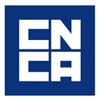 For the automotive market this may lead to import restrictions for the specific part or, in worst case scenario, a complete import ban of the entire vehicle. CCC certificate holders should initiate the certification update in a timely manner to avoid problems. We recommend to update the CCC certificates during the follow up inspection in 2015, since all certificates issued prior to the update will be based on the old standard.
For the automotive market this may lead to import restrictions for the specific part or, in worst case scenario, a complete import ban of the entire vehicle. CCC certificate holders should initiate the certification update in a timely manner to avoid problems. We recommend to update the CCC certificates during the follow up inspection in 2015, since all certificates issued prior to the update will be based on the old standard.
It is also important to note that the updating process will further include a careful inspection of the manufactures’ CoP (Conformity of Production) and the corresponding process instructions. All relevant CoP documents will need to be available and complete prior to the factory audit.
We will be happy to advise and assist you with updating your CCC certificate to comply with the new regulations. If you should have any questions, concerns, or needs please call or email us. You may contact us by phone at (UK: +44 2071931135, Rest of Europe: +49 69 2713769150, US: +1 773 654-2673) or you can email any time.
For more detailed information please download our free booklet “CCC Made Easy” here. Please also contact us for our free presentation regarding the new CNCA implementation rules. It contains helpful information and explanations regarding the new requirements of Chinese certification authorities. We will be happy to send the presentation to you.
CCC: CCC Certification for Child Safety Seats in Motor Vehicles will be Mandatory After September 1, 2015
As we previously stated in our news section, CCC Certification for child safety seats in motor vehicles will be mandatory starting September 1, 2015. All forms of child restraint systems and child seats including integrated child seats used in the automobile will be required to have CCC certification.
In joint announcement No. 6 of 2014 by AQSIQ and CNCA the previously voluntary CQC certification for Child Restraint Systems (CQC11-491287-2013) became mandatory September 1, 2014. The safety tests are performed as required by GB Standard 27887-2011 “Restraining devices for child occupants of power-driven vehicles” which was implemented on July 1, 2012. After September 1, 2015 child seats, child restraint systems and integrated child seats must have a valid CCC certification in accordance with the prescribed standards, which are issued by the CQC (China Quality Certification Centre) or the CCAP (China Certification Centre for Automotive Products). Without a valid CCC certificate child seats, child restraint systems and integrated child seats will not be allowed to be imported or sold in P.R. China. More information regarding the CCC certification process for Child Restraint Systems can be found in the corresponding implementation rule, which was issued in May of 2014 and has been in effect since September 1, 2014.
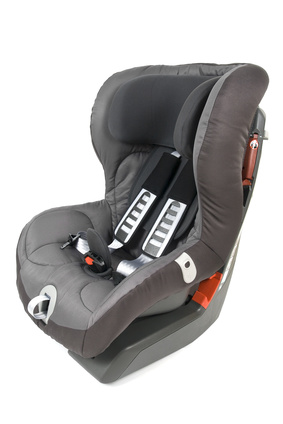 Are you the manufacturer of child safety seats and need a CCC certification for your products? Are you interested in learning more about the new Implementation Rules? Please call us, to get a copy of our presentation with more details regarding CCC for child safety seats.
Are you the manufacturer of child safety seats and need a CCC certification for your products? Are you interested in learning more about the new Implementation Rules? Please call us, to get a copy of our presentation with more details regarding CCC for child safety seats.
Please call or email us for more information or to answer any questions you may have (UK: +44 2071931135, Rest of Europe: +49 69 2713769150, US: +1 773-654-2673).
General information regarding CCC certification, the certification process and the costs of associated with certification can be found on our website. For more comprehensive information please download our free booklet “CCC Made Easy” here. You may also consider our book “A Brief Guide to CCC: China Compulsory Certification”, which can be ordered directly on Amazon here.
CCC: CCC for Welding Machines
In 2009 the Chinese certification authority CNCA (Certification and Accreditation Administration of the People’s Republic of China) published the GB standard (GB15578-2008) on Safety Requirements for Resistance Welding Machines. This GB standard replaces the old GB standard (GB15578-1995). The GB15578-2008 is the most current GB standard for these types of products and included many new requirements, which were not required by the previous GB standard (i.e. safety requirements for wires, basic insulation requirements, power-on/off switch device etc.). Detailed requirements for operation manuals and nameplates on welding machines were also added to the new GB Standard.
CCC certification is required for welding machines and manufacturers will need to apply for CCC certification before the products can enter the Chinese market. It is important for manufacturers to understand and consider all of the current requirements of the applicable GB standard before submitting their application for CCC certification. Different requirements may apply to manufacturers of special machines. Please contact us for more details here via email.
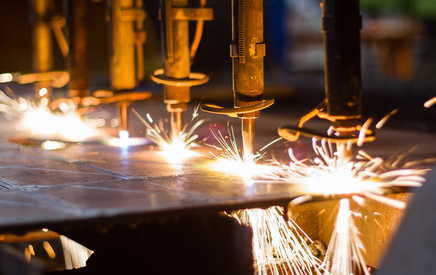 In our “News” section we will also keep you informed about all of the latest announcements from the Chinese authorities. Please check our website regularly since these official announcements can be detrimental in maintaining product compliance, and are often made without any advanced notice.
In our “News” section we will also keep you informed about all of the latest announcements from the Chinese authorities. Please check our website regularly since these official announcements can be detrimental in maintaining product compliance, and are often made without any advanced notice.
Information regarding GB standards, CCC certification, the certification process and the associate costs can be found on our website. You will also find details regarding our complete certification package on our website including a general anticipated time frame. Take a look at our references section to see a list of some of our clients and what they are saying about us. For more detailed information please download our free booklet “CCC Made Easy” here.
China Certification Corporation consults you for all GB standards and supports you during the complete CCC certification process:
• Straightforward, transparent handling of the certification process
• All-inclusive consulting through our German, Chinese and US based offices
• Regular updates and information regarding the certification progress
• Important contacts to all relevant Chinese institutions
• No Chinese language skills required, we will handle all of the necessary communications with the certifying authorities and test labs for you
Are you the manufacturer of welding machines or special machines, or do you just want to receive more information about the most recent GB standard on Safety Requirements for Resistance Welding Machines? Please do not hesitate to call or email with any questions you may have.
CCC: New Requirements for Annual Follow Up Certification
One of the changes includes an expanded scope for CCC requirements of interior trimming materials. Many interior parts that did not previously need CCC, will now be required to get CCC. You can find more detailed information regarding the changes here.
The Implementation Rules have also changed and define a few new requirements for the process of CCC certification that will need to be addressed to maintain compliance.
All CCC certificate holders are obligated to update their certificates by December 31, 2016. After January 1, 2017 all CCC certificates will need to have the new CNCA regulation number to be valid. Certificates with the “old” number will be immediately suspended or cancelled. Automotive parts which have not been re-certified according to the new CNCA Implementation Rules will not be allowed to be imported, bought, sold, traded or used in the Chinese market. For the automotive market this may lead to import restrictions for the specific part or, in worst case scenario, a complete import ban of the entire vehicle. CCC certificate holders should initiate the certification update in a timely manner to avoid problems.
What You Need to Know
Updating CCC certificates is only possible in the course of the annual follow up inspection. The application cannot be filed prior to the inspection. It needs to be filed and combined with the annual follow up certification. This way during the factory inspection the Chinese certification authority can make sure that the manufacturing facility meets all of the requirements of the new CNCA Implementation Rules. After the inspection is passed the change application will be accepted and the updated CCC certificates will be issued.
Due to these new requirements and added work, the CQC and the CCAP may require a 2 day follow-up inspection, instead of the normal 1 day annual follow-up inspection. This needs to be considered when calculating the annual follow-up audit costs.
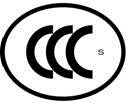 Manufacturers who decided not to update the CCC certificates in 2015, must do it in 2016. It is always better to update sooner than later, since there may be a bottle-neck in the administrative side as the deadline approaches. It is also a good idea to make sure that you understand all that is involved with the requirements and the application process. Please do not hesitate to contact us by phone or email if you would like our support in doing this.
Manufacturers who decided not to update the CCC certificates in 2015, must do it in 2016. It is always better to update sooner than later, since there may be a bottle-neck in the administrative side as the deadline approaches. It is also a good idea to make sure that you understand all that is involved with the requirements and the application process. Please do not hesitate to contact us by phone or email if you would like our support in doing this.
Are you seeking for more information about the new implementation rules for interior trimming parts? Then contact us for more details and advice! Please do not hesitate to contact us by phone (UK: +44 2071931135, Rest of Europe,: +49 69 2713769150, US: +1 773 654-2673) or email with any questions you may have.
For more detailed information please download our free booklet “CCC Made Easy” here. Please also contact us for our free presentation about the new CNCA implementation rules. It contains helpful information and explanations regarding the new requirements of Chinese certification authorities. We are pleased to send the booklet to you.
CFDA: The CFDA Implements New Guiding Opinions on Enhancing the Construction of Food and Drug Inspection and Testing System
The Chinese certification authority CFDA (China Food and Drug Administration) has been in existence since 2013, replacing the institution that was formerly known as SFDA (China State Food and Drug Administration). The CFDA is a division of the State Council of the People’s Republic of China and is responsible for monitoring and processing the registration and certification of food, drugs, cosmetics, medical products and medical devices in the People’s Republic of China.
Manufacturer of medical products and devices are required to apply for CFDA registration before their products are eligible to enter the Chinese market.
 In December of 2015 the ministers of the CFDA met to work out new guidelines for enhanced inspection procedures and testing systems for food and drugs in China. As a result of the meetings they published “New Guiding Opinions on Enhancing the Construction of Food and Drug Inspection and Testing System” in January 2015. The document defines the hierarchical structure within the agency for food and drug inspection. The structuring was set as follows:
In December of 2015 the ministers of the CFDA met to work out new guidelines for enhanced inspection procedures and testing systems for food and drugs in China. As a result of the meetings they published “New Guiding Opinions on Enhancing the Construction of Food and Drug Inspection and Testing System” in January 2015. The document defines the hierarchical structure within the agency for food and drug inspection. The structuring was set as follows:
Four-level structure of inspection agencies for food and health food
- State
- Province
- City
- County
Three-level structure of inspection agencies for drugs and cosmetics
- State
- Province
- City
Two-level structure of inspection agencies for medical products and devices
- State
- Province
The new Guiding Opinions will improve the inspection system creating more transparency within the different hierarchical levels.
If you would like to know more, have questions or concerns, please contact us any time by phone or email.



